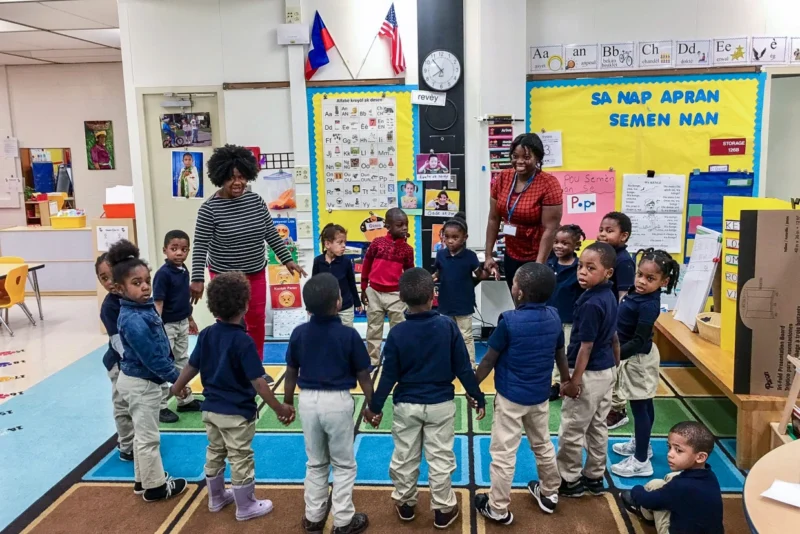This Boston preschool is teaching children in Creole and English — and instilling Haitian pride
Share
Explore Our Galleries
Breaking News!
Today's news and culture by Black and other reporters in the Black and mainstream media.
Ways to Support ABHM?
By Fredlyn Pierre Louis, NBC

In the heart of Boston’s Mattapan neighborhood, a quiet revolution is taking place at the Mattahunt Elementary School, whose Toussaint L’Ouverture Dual Language Academy is not just breaking down language barriers but also fostering pride, empowerment and a deep connection to Haitian culture among its students.
It’s the first two-way immersion Haitian Creole dual-language preschool program in the country, and it’s fitting that it operates in Boston, the city with the third-largest Haitian population in America. Priscilla Joseph, a founding teacher of the academy, said it was created in 2017 to meet the needs of the surrounding Creole-speaking neighborhood.
[…]
Joseph, who is Haitian American, said she draws from her own experiences as she passionately advocates for the importance of preserving Haitian Creole. “I also grew up in a place where it wasn’t OK to say that you were Haitian, and there was a lot of discrimination against Haitian people,” she said. “So I kind of took my own experiences and entered that into the classroom, knowing how it feels to be a little bit different, or a little bit outcasted, because of your culture.”
Keep reading to learn more about these programs, including what a typical day looks like.
Haiti has suffered from European colonialism.
More stories about the Black experience.









Comments Are Welcome
Note: We moderate submissions in order to create a space for meaningful dialogue, a space where museum visitors – adults and youth –– can exchange informed, thoughtful, and relevant comments that add value to our exhibits.
Racial slurs, personal attacks, obscenity, profanity, and SHOUTING do not meet the above standard. Such comments are posted in the exhibit Hateful Speech. Commercial promotions, impersonations, and incoherent comments likewise fail to meet our goals, so will not be posted. Submissions longer than 120 words will be shortened.
See our full Comments Policy here.